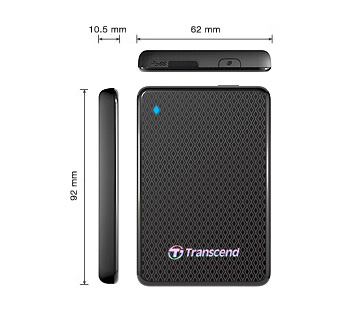My experience mostly covers external SSD drives with Windows To Go (8.1) installed.
Patriot Supersonic Magnum (Manufacturer) (Amazon)
Good points:
Bad points:
Imation Ironkey W300 (Manufacturer) (Amazon)
Good points:
Bad points:
Patriot Supersonic Magnum (Manufacturer) (Amazon)
Good points:
- Speedy with large files e.g. backup images
- Convenient size
Bad points:
- Very poor speed for small files - so not good for Windows To Go at all
- Quite bulky on the width, so may not be able to plug in things to ports next to it
Imation Ironkey W300 (Manufacturer) (Amazon)
Good points:
- Very small SSD - size of a normal USB stick
- Excellent speeds (400MB/s read and write even with BitLocker enabled)
- Excellent speed even when connected to USB 2.0 (nearly unnoticeable difference)
Bad points:
- Does lag/freeze temporarily sometimes (not enough to write to Event Viewer, so possibly caused by antivirus software)
- Very expensive for the storage sizes (£300 for a 128GB drive)
- Can get very hot
- Cap does not fit onto the end of the stick
Transcend ESD400K SuperSpeed USB 3 (Manufacturer) (Amazon)
Good points:
- Cheapest SSD for a decent performance
- Very small size (wallet card sized)
- 3 year warranty
Bad points:
- I had major problems with this device and timeout errors after 2 weeks of use .This was apparent under both Windows 8.1 and Ubuntu 14.10
- Transcend customer support was not helpful
Freecom Mobile Drive Mg USB 3 (Manufacturer) (Amazon)
Good points:
- Very thin and stylish design akin to Apple Mac
- Excellent performance speeds
- Stylish casing
- No regular lagging issues that I have seen
Bad points:
- Cable that comes with it is not as stylish
- More expensive than other SSDs available
- Comes formatted for Mac (but of course can easily be reformatted by Disk Manager)
For a detailed breakdown of SSD speeds and prices I could find on Amazon at the time, see here:

